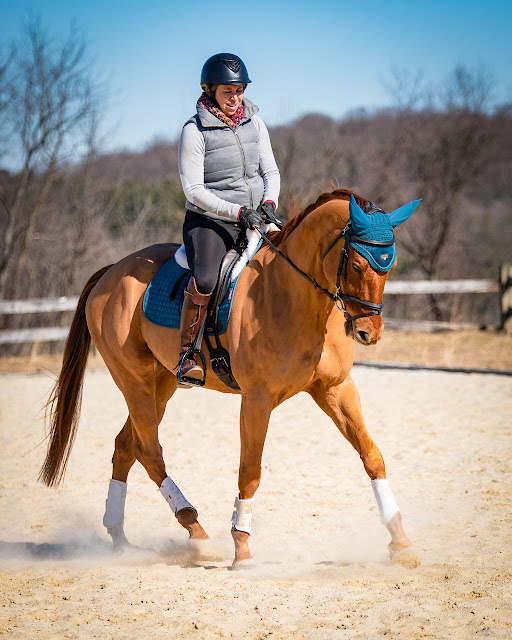Things To Look For - And Avoid - In A Trainer
There comes a time in every rider's career when they need the help of a professional trainer. Even the pros have their own pros. It's just a fact of life that this is a sport in which you cannot progress on your own for very long. You need outside influence; whether that comes in the form of the eye of a more knowledgeable friend, the occasional clinic, weekly lessons with a trainer, or just reading and watching a ton of videos.
That said, there are good trainers, and not-so-good trainers out there. I've ridden with both kinds! And when I do teach, I try to model the good ones as much as possible. While outside help is absolutely necessary to progress as an equestrian, you need to take care when deciding where to seek that help. You don't have to pass a test to call yourself a "trainer", and there are some bad eggs out there. Here are some tips to remember, and pitfalls to avoid, when choosing a trainer to help you in your quest for better riding:
That said, there are good trainers, and not-so-good trainers out there. I've ridden with both kinds! And when I do teach, I try to model the good ones as much as possible. While outside help is absolutely necessary to progress as an equestrian, you need to take care when deciding where to seek that help. You don't have to pass a test to call yourself a "trainer", and there are some bad eggs out there. Here are some tips to remember, and pitfalls to avoid, when choosing a trainer to help you in your quest for better riding:
- Your trainer should inspire confidence, NOT fear. You should never, ever feel like your trainer is trying to kill you. Even when you are being pushed to your limits, a good trainer will allow you to trust them, knowing that they will never ask you to do something you aren't capable of.
- A good trainer explains things in a way that you can understand clearly, and if you don't understand, they explain it in a different way. Everyone learns and processes information in a slightly different way, and an example or description that makes sense to one person might not make sense to another. Hook up with a helper who speaks your language.
- Seek someone with a similar philosophy. I've ridden with a handful of rotten trainers who were either downright crazy, or subscribed to a philosophy of training that I didn't agree with. Know what's important to you in a training program, and seek out a trainer who shares those values.
- Let yourself be challenged! I've also ridden with some really great people who, while sweet and encouraging as can be, never really challenged my abilities. This can be fun for a while, but eventually it gets BORING, and you can stall out in your progression. A good instructor is one who will challenge you and push you outside of your comfort zone so that you can grow.
- Find a teacher who listens to you. Not every program works for every horse and rider, and the best trainers are flexible in this respect. If your trainer doesn't listen to the needs of you and your horse as individuals, it's time to find a new one!
- And, last but probably most obviously, don't stick around with someone who is abusive to you or your horse. For some reason people in this industry seem to think it's OK to be belittled and berated by a trainer, and it's NOT. If you're working with a trainer who makes you feel like a worthless piece of dirt, you need a new trainer! If your trainer treats your horse like a worthless piece of dirt, GET OUT OF THERE! We ride because it's fun, and because we love horses. If your trainer sucks the fun out of your riding, they aren't worth the money you're spending.


Comments
Post a Comment